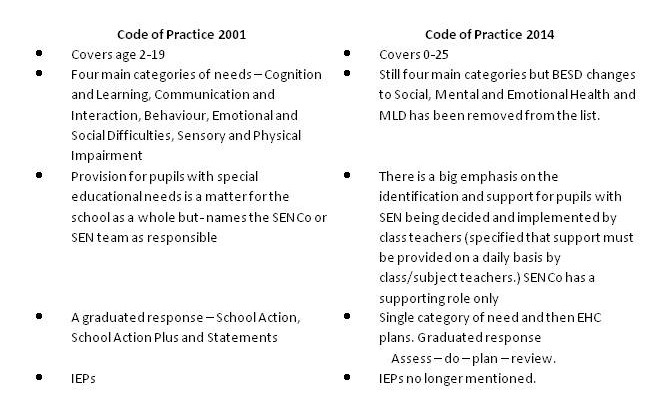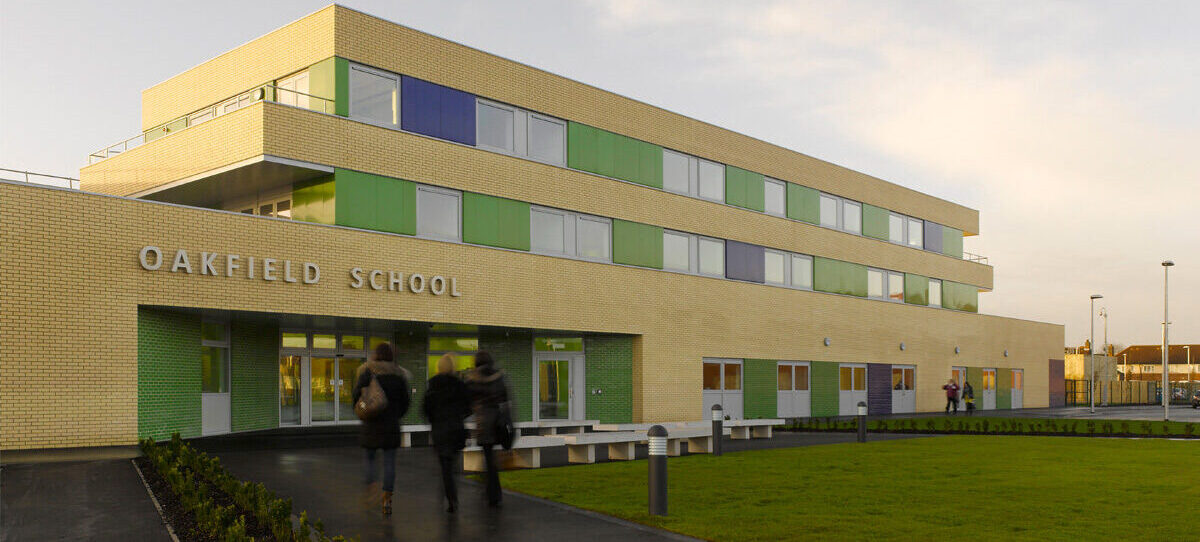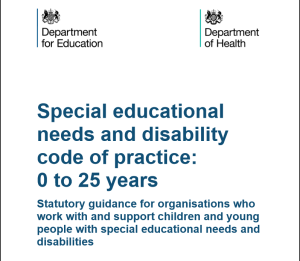Special educational needs and disability code of practice: 0 to 25 years.
Statutory guidance for organisations who work with and support children and young people
with special educational needs and disabilities.
In June 2014 the Government brought into law the new Special Educational Needs and Disability Code of Practice: 0 to 25 years. This new code of practice is the biggest change in special needs education in over 30 Years.
SEND_Code_of_Practice_January_2015
But why are things changing?
“A statement is not enough” Ofsted 2010
“In some schools inspectors met pupils who were provided with significant additional hours whose needs could and should have been met appropriately by differentiated teaching”
“too often is was assumed that children with SEN could not work with their peers because it was assumed they should work with adult assistance”
“Inspectors saw schools that identified pupils as having Special Educational Needs when in fact their needs were no different from those of most other pupils.”
“Children are underachieving but this was sometimes simply because the school’s mainstream teaching provision was not good enough and expectations of pupils were too low”
What is the Code of Practice?
It is statutory guidance on duties, policies and procedures relating to Part 3 of the Children and Families Bill.
New SEN Code of Practice
♦ A Family Centred System
♦ Integration, Joint Commissioning & Co-operation
♦ The Local Offer
♦ Early Years, Schools, Colleges etc
♦ Identifying Needs (including Additional SEN Support)
♦ Assessments & EHC Plans (including Personal Budgets)
♦ Resolving Disputes
What are the changes important to schools and Parents?

SEN Reforms 2014 – five things we need to know
New Code of practice 2014
Parents know their child best…there is an expectation that LA’s place parents and young people at the heart of the processes and decisions.
♦ “the benefits of early identification are widely recognised; identifying need at the earliest point that a physical, sensory, learning or mental health need presents itself, and then providing good interventions, improves long term outcomes for the child”
“When you change how you see the world, your whole world changes.” (Aman Motwane, 2000)

